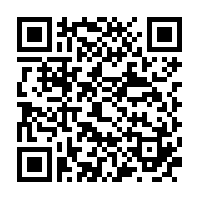The Tongue of Truth: Syedna’s Eid ul Fitar Qasida
25 September 2014
يسم الله الرحمن الرجيم
وَاجْعَل لِّي لِسَانَ صِدْقٍ فِي الْآخِرِينَ
'And appoint me a tongue of Truthfulness among the others'
(Surat al-Shu’ara: 84)
This article was written by Ra'sul Hududil Mayameen Janab Syedi Aziz Bhaisaheb Qutbuddin in 2014.
The virtue of Truth (Sidq – sachchaai) is that which defines Allah Ta’ala’s message and His messengers. For example in the Qur’an, Allah Ta’ala promises reward for the believers and rhetorically asks ‘and whose words are truer than Allah’s’ (Surat al-Nisa’: 122).
There are many instances in which the virtue of Truthfulness is extolled in the Qur’an- the ayat quoted at the beginning of this Sijill is, in the Qur’anic context, a statement by Nabi Ibrahim SA (Surat al-Shu’ara: 84). In many of our Dawat texts it is explained that the reference to the ‘Tongue of Truthfulness’ (in later generations) is to Nabi Mohammed Rasulullah SA-the Prophet who was aptly known as al-Sadiq al-Amin. There are also many references that assert that this same virtue of Truthfulness is inherited by the Imams and, in their seclusion, the Dais. In his first Risalat, Syedna Taher Saifuddin RA describes the Imams as the ‘crescent moons of Haqq and the guideposts of Truth’ (ahillatul-haqq wa adillatus-sidq). Further, Syedna Taher Saifuddin identifies himself with the following words: ‘I call to what they [the Imams] called – Dawat ul Haqq, I follow the path they followed – the path of Truth’ (ad‘u ila ma da’aw min al-Haqq wa asluku ma salaku min sabil al-sidq). By understanding this context, we can better appreciate the depth of the first verse of Syedna Khuzaima Qutbuddin’s Eid Qasida.
In this Qasida, Syedna Qutbuddin TUS asserts that he is defined by the virtue of Truth, just
اَلِسَانَ صِدْقٍ بِالحَقِيقَةِ ڪَلِّمٖ
وَعلىٰ لَوَاهِيْتِ الحَقَائِقِ سَلِّمٖ
as his predecessors were defined by the virtue of Truth.The Truth is expounded upon in Syedna’s Qasida in two parts: the knowledge of Divine Truths (Haqiqat nu ‘ilm) and Syedna’s assertion of his position, the Dai of Imam-uz-Zaman. First, the knowledge of Divine Truths (Haqiqat nu ‘ilm) is in the heart of each and every Dai. The first 13 bayts of Syedna’s Qasida reference these Divine Truths, particularly the importance of the continuity of the chain of Imams from Rasulullah to our present day. The simplest and most common representation of this continuity is the Salawaat – with which the Qasida starts (Salaam being a part of Salawaat) and ends. The second set of Truths that Syedna speaks of is with reference to himself as the Dai of Imam-uz-Zaman (Qasida verses 14-22). In these verses he identifies himself as the servant of the progeny of Mustafa and Murtaza and as their Dai. He also identifies himself as the Mansoos of two Dais – Syedna Taher Saifuddin RA and Syedna Mohammed Burhanuddin RA; the one who is defending their lair, the lair of religion. He states that, ‘[I am] a man of integrity, my tongue speaks true. My lips are habituated to nothing but pure truth.’ In the last few verses Syedna expresses his conviction in serving the Imam, his longing for his deedar, and his gratitude for the maa’idat – the thaal full of the Imam’s fuyooz – that he receives in Eid. Many more lines and pages of explanation and analysis are required to fully appreciate the profoundness of this Qasida. This introduction aims to give a glimpse at the depth of meaning in each verse. The Qasida is indeed a manifestation of the maa’idat of fuyooz that are flowing from the Imam to his Dai. The bold statement in his Qasida, is a manifestation of Syedna Qutbuddin’s confidence and conviction as the Dai of Imam-uz-Zaman SA.
يَا أَيُّهَا الَّذِينَ آمَنُوا اتَّقُوا اللَّهَ وَكُونُوا مَعَ الصَّادِقِينَ Surat al-Tawba: 119 This verse of the Qur’an is addressed to the believers: ‘O you who believe, maintain the taqwa of Allah Ta’ala and be with the sadiqeen’. In one of his Majalis (Majlis 90) Syedna al-Mu’ayyad al-Shirazi asserts that the word Sadiqeen – those who are True – in this ayat refers to the Imams. In the time of the Imam’s seclusion, the Imam’s representatives, the du’at, are the sadiqeen. May Allah Ta’ala give us the strength to maintain His taqwa and be with those who are True.
PDF of Qasida with Dawat ni Zaban fehwa and English translation is available here.


